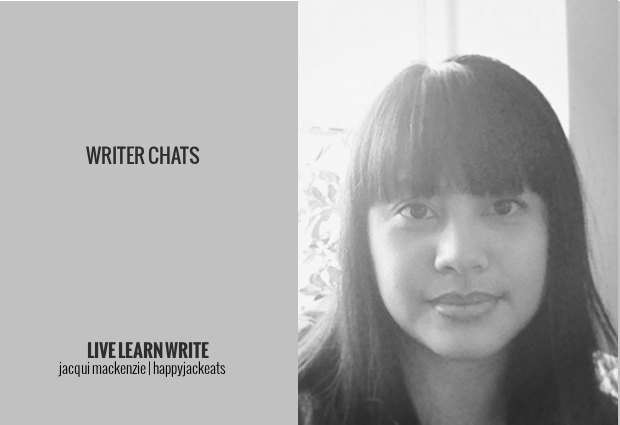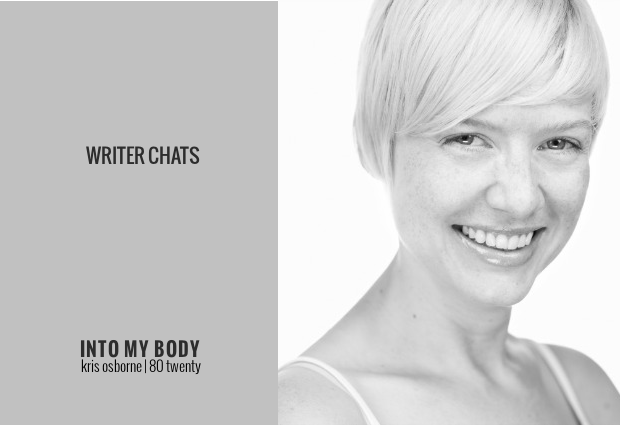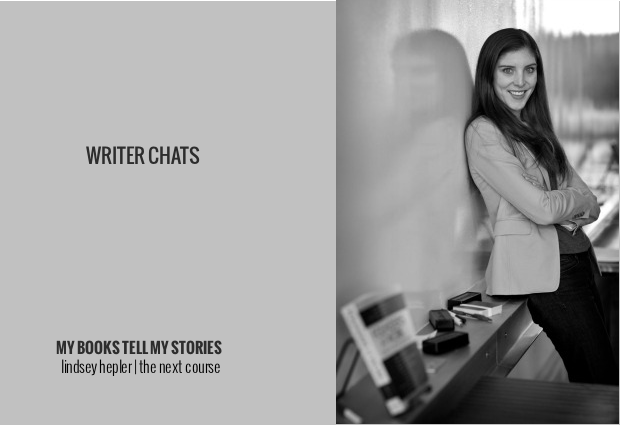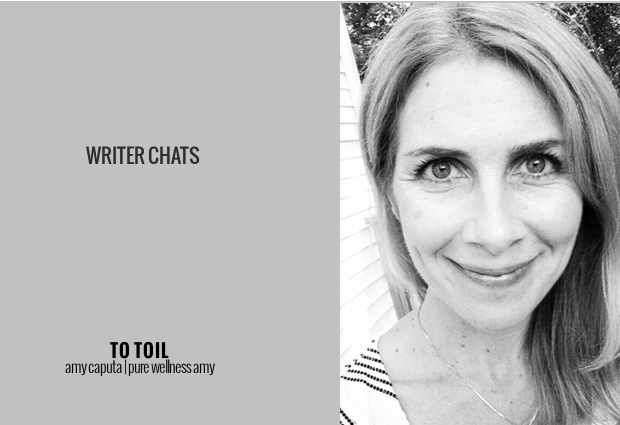Today’s entry in the Writer Chats series comes from a girl I first met when we were editorial interns together, working for a small publishing house in suburban Chicago. Jacqui and I didn’t become friends until two years later, after we found out on LinkedIn that we’d started food blogs on the same day and started reading each other’s stories. Last May, in an email, I told her “I look forward to hearing from you every time you post. You have a voice that feels very easy and very true,” and, people, I do, and she does. Here are her words.

Sometime in May, I told my husband Murdo that I hope I never stop learning. We were in our backyard, sitting on a blanket in the grass, a few burgers sizzling on the grill. This past spring was our first in our new home, and I feel as though I am seeing these warmer seasons through new eyes. I watch carefully as the leaves of our clematis plant climb its trellis, amazed at how it curls and clings its way to the top, then unleashes these incredibly deep purple blooms. I make mental notes of pretty flowers I notice in other people’s yards, and go back home to learn their names and how to care for them. I put tomato and cilantro and basil and pepper plants into the ground and watch them grow toward the sun. I learned that my zucchini plants grow large leaves that like lots of space, and raspberry bushes grow like a weed.
“In 10 years, we’ll be pros at this homeowner thing,” I said to Murdo weeks later as we walked around our neighborhood. By then, we’ll be learning something new, like raising a child. And I’ll write about it on my blog, just like I did when I discovered roasted beets, and I baked my first cake, and I bought my first matching bedroom set.
In an article for The Atlantic, Jon Reiner wrote:
Ideally, creative writing programs should exist to guide students in discovering their voices within the nurturing world of the classroom. But what they can’t do is provide writers with real-world experience and the perspective to make sense of it, without which there is no storytelling, there is no “editor I’m going to work with” giving the green light. Creative writing programs can teach you howto write, but they can’t teach you what to write. No instructor or Zellowship can transform you into a storyteller without experience strutting your ambition.
When I first read this, I immediately equated “real-world experience” with adventurous travel studded with worldly stories about different cultures, complicated relationships, exotic foods. But I’m realizing now that I don’t have to pack up my suitcase to see and experience new things worthy of telling through the written word. Even in my small, suburban life, where every day can sometimes seem very routine, I am learning about a new world in my own home. And with each discovery, no matter how large or small, there is a story to be told.
See, that’s what I love about writing. There is always something new to learn. There is always a story. They say to write what you know. Well, you can know anything you want. Just learn it. Live it. And if you want to write about an adventure on the other side of the world but you find yourself sitting in your own backyard, then dream it. And then write it.
About Shanna Mallon
Shanna Mallon is a freelance writer who holds an MA in writing from DePaul University. Her work has been featured in a variety of media outlets, including The Kitchn, Better Homes & Gardens, Taste of Home, Houzz.com, Foodista, Entrepreneur, and Ragan PR. In 2014, she co-authored The Einkorn Cookbook with her husband, Tim. Today, you can find her digging into food topics and celebrating the everyday grace of eating on her blog, Go Eat Your Bread with Joy. Shanna lives in Nashville, Tennessee, with Tim and their two small kids.




Ah so true! For me it took realising what I liked to read about – the every day, people’s routines and daily discoveries – to make the connection that these things could make my stories too.
I love this. Sometimes I feel like I need to go have a big adventure and do exciting things, but there is really so much experience to be had in our every day lives if we just make a point to notice it.
Thanks for welcoming me into your lovely space, Shanna. And for your kind words, always. xo
Hi Jacqui! I loved your description of your backyard and it’s plants…and how it’s true, that it’s how we see things, and not the things that we see, that determine how much we learn about life. My cousin used to tell me “it’s all in the frame of mind” and that we could be going about our small island country Singapore everyday but still make pretend we were tourists, exploring something new, novel and completely different everyday.
So glad to hear your thoughts and thanks so much for sharing!
This is so well-written and just what I needed to read. Living in this quite suburb, I find myself constantly complaining of the lack of stimulation. However, I must keep my mind opened and try to notice (and embrace) the subtlest details that everyday brings. I hope to travel more as the only places I’ve been to are U.S and Korea. But until then, I shall keep exploring and writing from where I am.
Min, Have you heard of the book, “The Art of Travel”? It completely changed the way I look at stimulation/travel/interesting scenes. Your comment makes me think of it. Thanks for saying hi here and for enjoying Jacqui’s thoughts as much as I did! -s
I really love that last paragraph!
The process doesn’t end there. Stories are more than just images. As you continue in the tale, you get to know the characters, motivations and conflicts that make up the core of the story. This requires more parts of the brain. Some parts process emotion. Others infer the thoughts of others, letting us empathize with their experiences.